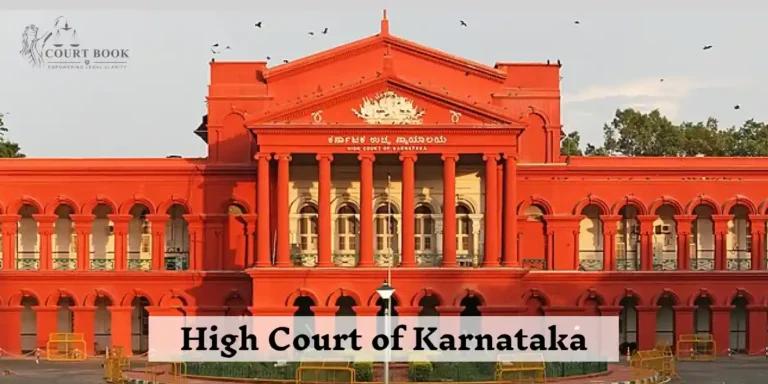The Karnataka High Court has quashed the criminal proceedings initiated against former Member of Legislative Council (MLC) D S Veeraiah in connection with the alleged misappropriation of ₹47.1 crore from D Devaraj Urs Truck Terminal Limited (DDUTLL), a government-owned entity, during his tenure as Chairman in 2021.
A single-judge bench of Justice M Nagaprasanna allowed the petition filed by Veeraiah in WRIT PETITION No. 31828 OF 2024, finding that the initiation of investigation and the filing of charge sheet without obtaining prior approval under Section 17A of the Prevention of Corruption Act (PC Act), 1988 was contrary to law. The FIR was initially registered under Sections 120B, 409, 420, 465, 468 and 471 of the Indian Penal Code (IPC), and offences under Section 13(2) of the PC Act were later added at the chargesheet stage.
"The prosecution has devised a method of projecting only offences under Section 409 and 420 of the IPC which are clearly identical to Section 13 of the PC Act, to get away with the rigour of prior approval under Section 17A of the PC Act," the court observed.
The complaint alleged that works worth ₹47.10 crores, undertaken during Veeraiah’s chairmanship, were suspicious and awarded without following the Karnataka Transparency in Public Procurements Act, 1999. The petitioner argued that being a public servant at the time, prior approval from the competent authority under Section 17A was a legal prerequisite for any investigation, as the offences were essentially under the PC Act though camouflaged under IPC provisions.
Veeraiah submitted that although sanction under Section 19 of the PC Act was obtained post facto for prosecution, the failure to secure prior approval under Section 17A at the investigation stage rendered the entire proceeding illegal. He contended that Section 409 IPC, used in the FIR, mirrors Section 13(1)(a) of the PC Act, indicating the true nature of the allegation as being corruption-related.
Rejecting the prosecution’s argument that approval was not required at the FIR stage when IPC sections were invoked, the court explained that the essence of the alleged misconduct was public servant misappropriation—an offence that squarely falls under the PC Act.
If Section 409 of the IPC, ingredients of which are found in Section 405 of the IPC, as juxtaposed with Section 13 of the PC Act, what does unmistakably manifest is Section 409 of the IPC and Section 13(1)(a) of the PC Act are twin reflections of the same essence – Criminal Misappropriation by a public servant. Thus, the soul of Section 405 and Section 13 are the same, the bench noted.
The court criticized the tactic of registering the FIR against “unknown persons” despite knowing the identities and roles of the accused. It described this as a deliberate strategy to evade the legal requirement of obtaining prior approval under Section 17A.
This is the deliberate act on the part of the prosecution to get away from the rigour of Section 17A of the PC Act. The prosecution has realised during the conduct of investigation that approval under Section 17A of the PC Act is necessary. It then seeks approval at the hands of the Competent Authority, it said.
Justice Nagaprasanna further ruled that proceedings initiated in contravention of Section 17A are void ab initio. He emphasized that a post-investigation sanction under Section 19 of the PC Act does not cure the threshold illegality arising from the lack of prior approval.
"In the light of the mandate of Section 17A, no camouflage proceedings can be permitted to get over the rigour of Section 17A of the PC Act. Therefore, the initiation of proceedings without obtaining prior approval under Section 17A, completing the investigation, filing the charge sheet are all acts that are contrary to law," the court held.
Finally, allowing the writ petition, the court concluded:
The prior approval under Section 17A is admittedly not granted. Therefore, the prosecution is wanting to build its edifice on shifting sands. Sanction obtained post facto under Section 19 of the PC Act cannot cure the threshold illegality of not having prior approval under Section 17A of the PC Act. Therefore, the foundation being infirm the structure cannot be sustained. Section 17A of the PC Act, cuts at the root of the matter.













